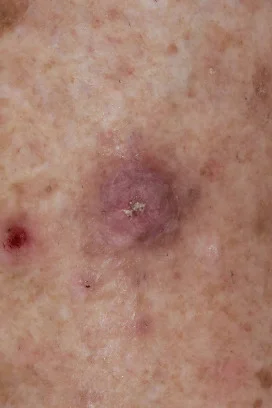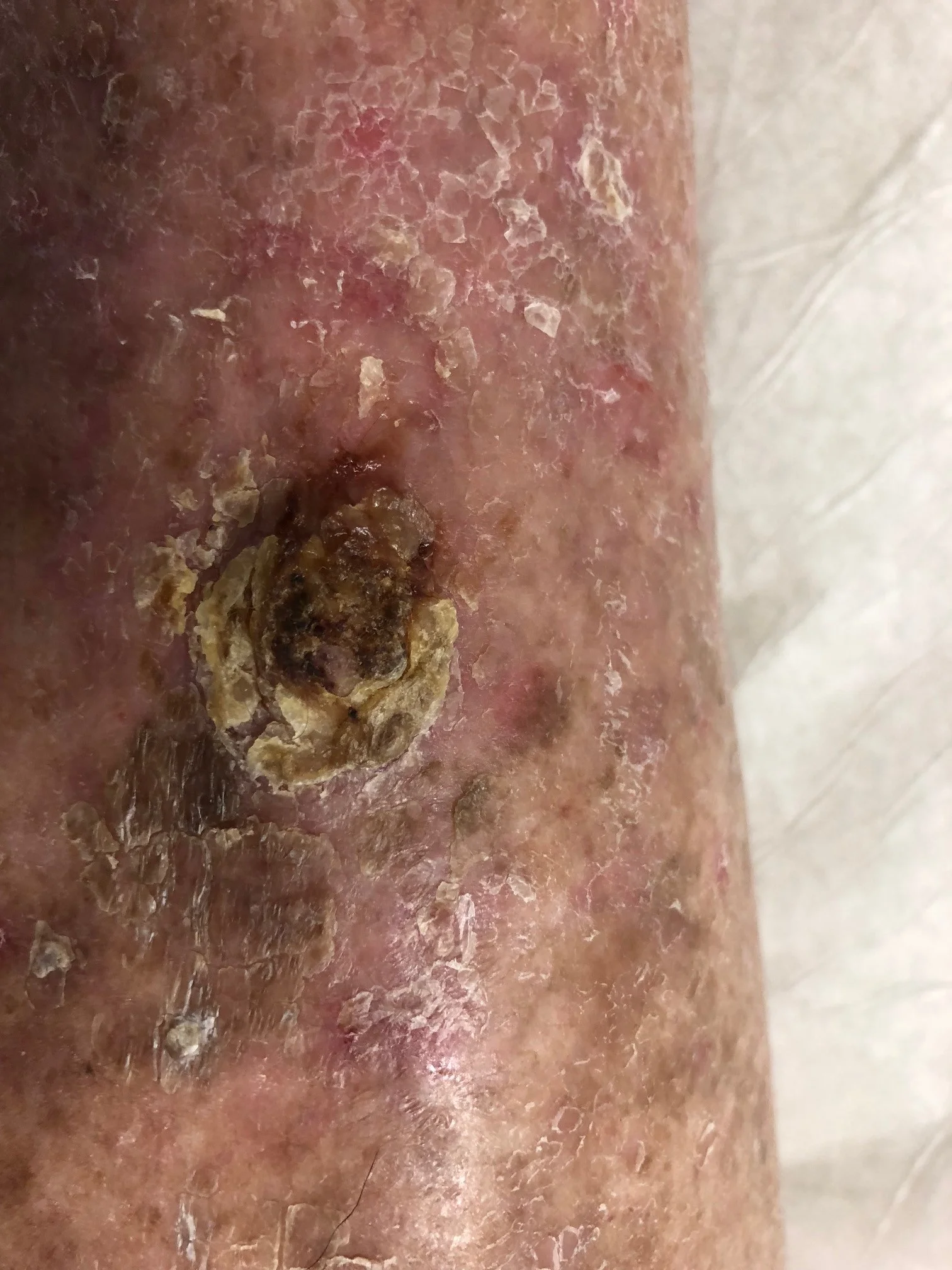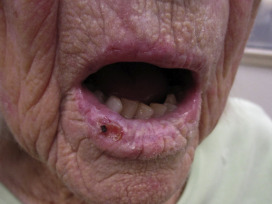Have you had a lot of sun exposure? Are you a smoker, or did you smoke? Do you have a chronic illness that is causing your immune system to be suppressed? All of these can put you at risk for squamous cell carcinoma — a skin cancer that is common and on the rise in this country.
Squamous cell carcinoma:
can “pop up” quickly, and grow fast
can develop in a wound that you have had for a long time
can be painful to the touch — but just as often doesn’t hurt at all
usually develops in areas that have “seen lots of sun”
Is squamous cell carcinoma dangerous?
It can be, depending on the size, location and type. Squamous cell carcinoma can spread to other parts of the body, but on the skin it usually does not. It can grow deeply and involve nerves and blood vessels.
If you are worried about a spot on your skin, get it checked!
Diagnosis and Treatment:
When you come to the office with a spot that is suspicous, the doctor will most likely do a skin biopsy. A small segment of skin is sampled and sent to the lab. A skin biopsy is not difficult; there is little pain and the areas heal easily.
Treatments for squamous cell carcinoma are varied and include topicals creams, injections, freezing with liquid nitrogen (cryosurgery), or surgery. Surgery is often the treatment of choice.
What about Mohs Surgery? And do I really need Mohs?
Some dermatologists will recommend that you see a Mohs surgeon for your squamous cell carcinoma. But do you really need it? The answer is not always. It is important to have your questions answered about your skin cancer treatment. If you are not sure, please call your doctor.




